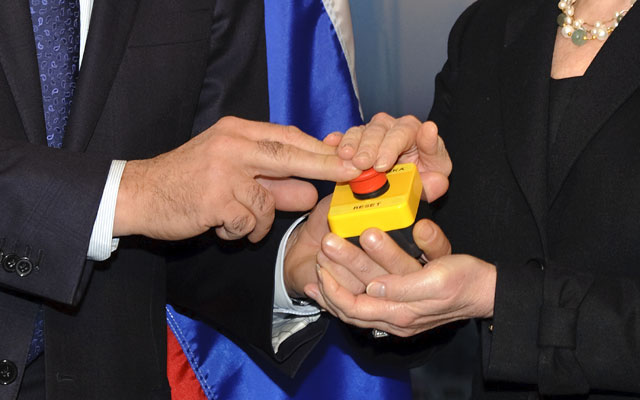Snowden Asylum Is Burying Obama’s Russian “Reset”
Ariel Cohen /
The Kremlin delivered a diplomatic blow to U.S.–Russian relations when Moscow granted former NSA analyst Edward Snowden a temporary political asylum. Now, the White House may cancel a U.S.–Russia summit that was scheduled for early September, and Obama’s Russian reset policy will require significant re-examination.
This will be the first time since the end of the Cold War that the U.S. canceled a previously scheduled summit with Russia. The extent of damage to the U.S.–Russian relations will be made clear over the next several months, and the harm may be significant.
There are three tiers of motives driving Russia’s calculations in the Snowden affair. The first tier is positioning Russia as an important actor in the public diplomacy/strategic information operations realm.
Moscow is playing the “freedom of information” and “the right to privacy” cards against the United States. WikiLeaks founder Julian Assange has his own show on Russia Today. Russian propaganda strategists believe that they can appeal to the younger, educated, libertarian crowd around the world, badmouthing the U.S. as a police state. Such an approach makes the U.S. look bad while keeping the world public opinion distracted away from Russian shenanigans.
The second tier is domestic. Russia for decades defined itself in opposition to the United States. The Kremlin propaganda machine is trying to convince the Russians that Russia is now so cool that foreigners want to come and live there.
Moscow made a huge deal out of the famous French actor Gerard Depardieu taking up Russian citizenship because he did not want to pay President Francois Hollande’s ridiculous 75 percent income tax. The Snowden affair has a similar taste: He is an important foreigner who wants to live in Russia for “ideological reasons.” Yet the track record of Western defectors in Russia is abysmal, often involving boredom, alcoholism, and even suicide.
Finally, the Snowden affair puts Russian President Vladimir Putin in the position of strength vis-à-vis Obama—which is where he wants to be in relation to foreign counterparts. It is the U.S. that is coming to Russia to beg. As in the case with the Tsarnaev brothers, Putin has something that America wants.
With Putin in the bargaining position, Obama is maneuvered into the position of weakness, looking even worse than Jimmy Carter. And that’s where the Kremlin wants him.
Yet it comes at a price. The U.S.–Russian relations are strained as never before, and any destabilizing factor creates a serious problem. While pragmatists believe that the White House and the Kremlin have too much to lose, the damage has been already done—and is getting worse.
Of course, the U.S.–Russian relations are based on pursuit of national interest. However, they are increasingly poisoned by the ideological rejection of the West and the U.S. by the Russian ruling elite.
Sooner or later, the United States might react asymmetrically in economic, energy, and human rights realms. The sand in the Obama Administration’s Russian “reset” clock may be running out.

